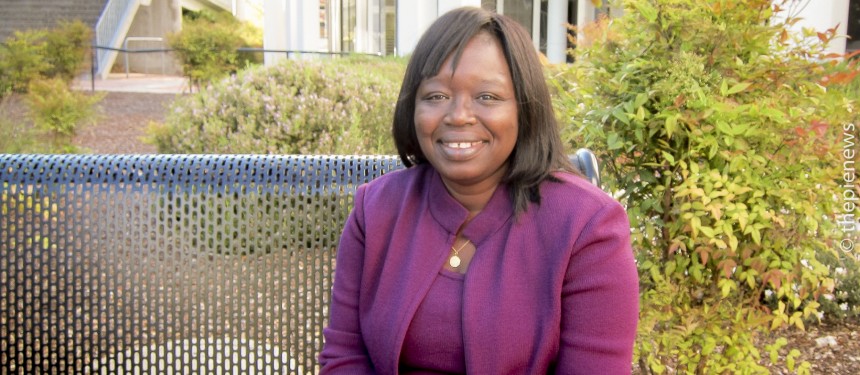FA: I was able to go to French international schools that were extremely diverse when it came to geography and race, ethnicity, religion, you name it. I functioned in that world, thinking that’s how the world was. I think that has shaped tremendously my lens on life. I have a natural bias for this work because I’m deeply passionate about it. What it has done for me has been my aspiration for what it can do for generations of students.
News and business analysis for Professionals in International Education
Have some pie!
Fanta Aw, President, NAFSA

The PIE: You’ve lived in some very high-conflict areas. Was there any event that impacted you the most?
“I functioned in that world, thinking that’s how the world was”
FA: One of the things that I always remember in this field is that this work in many ways is political and personal. It brings it home to me when I’m reading the headlines about something that’s happening somewhere in the world – either it’s a place that I’ve known and have fond memories of or it’s a place that I know because of students, or others that I’ve been working with. I read various newspapers from around the world and I start with the single question: how is this going to affect the work we do today?
The PIE: What are your thoughts on international education’s role in soft power agendas?
FA: I believe that international education has a critical role both in terms of soft power, smart power but really more fundamentally in terms of its potential to affect in real and some concrete ways the human condition.
The students and the faculty that are moving across borders and the learning and exchange that’s taking place result in them beginning to see “the other” in a very different way. “The other” is different, but “the other” is not threatening and not to be feared. If we can keep that in mind and if our core work can continue to stay focused on that, then I have a lot of hope for this field.
The PIE: What would you like to see more of in the industry?
FA: A couple of things come to mind – and I’m coming from a US perspective – I think there’s a lot more to learn from each other. Both in terms of the ways in which international education is being shaped in different parts of the world and the lessons that we can learn from that.
I’d like to see much more dialogue that’s regional and global. Secondly, I’d like for us to think about innovative ways to get American students to be more engaged with the world. I’m a deep believer in study abroad and its value, but I’m also a pragmatist and I understand that there will be generations of students who will never leave the borders of the US.
“The advocacy that it takes to make that happen is going to be one of the critical issues for international education in the US”
But I think that those students can have the same benefits of a global education while remaining in the US. The advocacy that it takes to make that happen is going to be one of the critical issues for international education in the US.
The PIE: How will changing demographics affect the ability to engage American students?
FA: I think the sea change in who’s accessing higher education and for what purpose, and the socioeconomic background of the students who are coming in who are really struggling financially to make ends meet and yet really need the skill sets to be competitive in the 21st century is very real for the US. We have to ask ourselves as practitioners and academics in the field, what does this mean for the state of the field and how do we begin to imagine or re-imagine this field in the next five, 10, 20 years.
The PIE: Speaking of changes, do you have an opinion about the NACAC decision to allow the use of education agents?
FA: It’s funny because the rest of the world is looking at the US and saying “wow it’s taken this long!” But again context and culture matters. I think the NACAC decision and the deliberations that took place to me symbolises an important milestone in the sense that these were fruitful discussions. I think ultimately there was the realisation that the environment for this work is changing, all around the world including the US, and that issue of the agent debate really needs to be shifting not from “is it happening?”– because we know it is – to, in the context of the US, “what is it going to take to do it right?”
“We have to make sure that this is not seen as a quick fix to larger systemic and structural issues”
In the case of the US, going back to soft power, your reputation is everything. It takes a long time to build. But it doesn’t take much to lose it. In light of that we’re going to have to tread very carefully and work with institutions to make sure that this is not seen as a quick fix to larger systemic and structural issues. And that first and foremost we need to do right by the students and their families.
Still looking? Find by category:



4 Responses to Fanta Aw, President, NAFSA